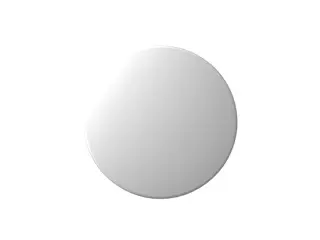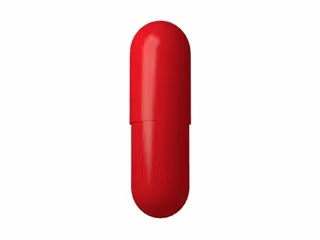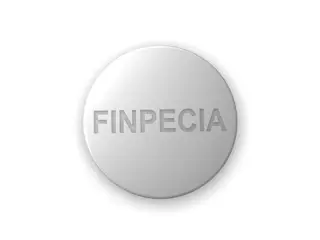Hair Loss
Explore effective treatments and supplements for hair loss to restore hair health and confidence. Shop trusted products designed to reduce hair thinning, promote growth, and nourish your scalp. Find solutions tailored to your needs and start your journey to fuller hair today.
Hair loss affects millions worldwide. It can impact confidence and self-esteem. There are several medications designed to help with this condition. Some are prescription-based, while others are available over the counter. Below is a review of popular hair loss medications.
Avodart is a medication that contains dutasteride. It is primarily used to treat benign prostatic hyperplasia but is also effective for hair loss. Avodart works by blocking the conversion of testosterone to dihydrotestosterone (DHT). DHT is a hormone that causes hair follicles to shrink and leads to hair loss. Taking Avodart can reduce DHT levels in the scalp. Many users report a slowdown in hair loss and some regrowth. It is more commonly prescribed for men with advanced hair loss. Common side effects include decreased libido and erectile dysfunction. Consultation with a healthcare provider is necessary before starting Avodart.
Fincar contains finasteride. It is used to treat male pattern baldness. Like Avodart, Fincar reduces DHT levels by inhibiting an enzyme called 5-alpha-reductase. This enzyme converts testosterone to DHT. By lowering DHT, the medication helps prevent further hair loss and encourages regrowth. Fincar is generally well-tolerated. Some men experience mild side effects such as decreased sexual desire or mild swelling. Treatment needs to be ongoing for results to persist. Stopping Fincar will likely cause hair loss to resume.
Finpecia is another finasteride-based pill. It is popular due to its affordability and effectiveness. Finpecia has the same mode of action as Fincar. It is widely used for male pattern baldness and shows good results in many patients. Users typically see improvements after 3 to 6 months of regular use. Side effects mirror those of other finasteride products such as sexual dysfunction in a small percentage of users. Regular medical check-ups are recommended when using Finpecia.
Penisole contains dutasteride, similar to Avodart. It is used for improving hair density and slowing hair loss progression. Penisole impacts both type I and II 5-alpha-reductase enzymes, making it potent in reducing DHT. This potency may lead to better results but also an increased chance of side effects. Male users should be cautious and follow doctor’s advice carefully. Penisole is usually prescribed when finasteride products show limited effectiveness.
Propecia is a well-known brand containing finasteride. It was one of the first medications approved for male pattern baldness. Propecia has a strong reputation for efficacy. Clinical trials showed significant hair regrowth in many users after one year. It works by inhibiting the 5-alpha-reductase enzyme, just like other finasteride products. Propecia treatment must be continuous. Side effects include decreased libido and occasional mood changes. Propecia is strictly for use by men only.
Proscar is another dutasteride-based medication. However, it is often prescribed for enlarged prostate conditions rather than hair loss. Some doctors use Proscar off-label for hair thinning problems. It shows promise in reducing scalp DHT levels. Due to its strong action, Proscar carries similar sexual side effect risks as Avodart and Penisole. It is generally recommended only after other hair loss treatments fail.
Rogaine is a topical treatment. It contains minoxidil, a vasodilator that stimulates hair growth. Rogaine is available in foam and liquid forms. Unlike finasteride or dutasteride, it does not affect hormones. It works by increasing blood flow to hair follicles and prolonging the growth phase of hair. Rogaine is suitable for both men and women. It is applied directly to the scalp twice daily. Users may notice initial shedding before new hair growth begins. Side effects include scalp irritation and unwanted facial hair growth if applied incorrectly. Rogaine is effective for early-stage hair loss.
Each medication has its strengths and weaknesses. Finasteride-based pills like Fincar, Finpecia, and Propecia are effective for many men. They reduce DHT and slow hair loss progression. Dutasteride-based products such as Avodart, Penisole, and Proscar are stronger but may have more side effects. Rogaine offers a non-hormonal option with fewer systemic side effects but requires consistent topical application.
When choosing a hair loss treatment, consider factors like severity of hair loss, possible side effects, and convenience. Prescription medications require medical supervision. Consistency is key for all treatments. Hair regrowth is gradual and may take several months to become visible. Stopping treatment usually leads to a reversal of gains.
It is important to combine medical treatment with proper hair care. Maintain a healthy diet rich in vitamins and minerals. Avoid harsh styling products that can damage hair. Reducing stress and getting enough sleep also support hair health. Consulting a dermatologist or specialist can help in selecting the best treatment plan.
In summary, popular hair loss medications provide different options for managing hair thinning. Finasteride pills are reliable for many men. Dutasteride products are potent alternatives. Rogaine offers a topical solution for both genders. Regular use and patience are necessary. Side effects should be discussed with a healthcare provider. Combining treatment with a healthy lifestyle enhances outcomes.






